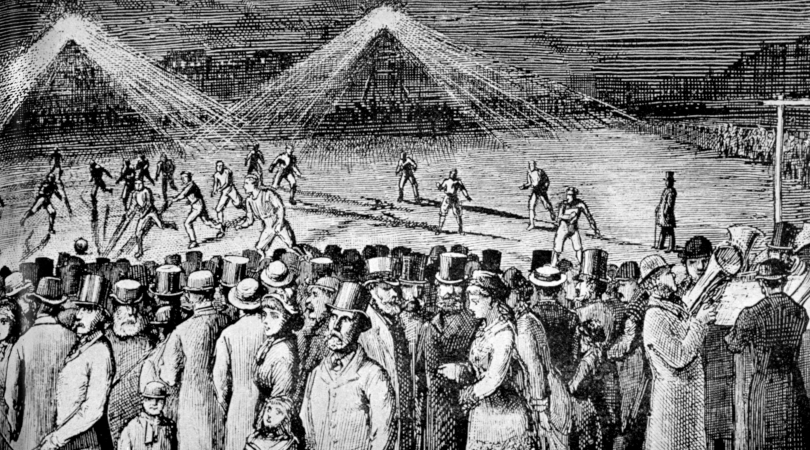Play all audios:
Even in the unprecedented times of a global pandemic shutdown, football’s main arguments remain just the same as ever. That is the view of the creators of Netflix’s new six-part drama The
English Game, that charts football’s origins. Written and produced by Downton Abbey creator Julian Fellowes, the new Netflix series allows fans a chance to compare and contrast the sport’s
humble beginnings with today’s multi-billion pound mega industry. You may like And when contrasting the past with the present, producer Rory Aitken believes the similarities might just
outweigh the differences. “In the early days the teams that kept winning were the teams that had money already, and could therefore afford not to work and practise,” Aitken told the PA news
agency. “They were simply better nourished and fitter; the Old Etonians, when they played Darwen, were on average seven inches taller than the Darwenians. “They just had a more comfortable
life and had the money to be able to play. The best features, fun and footballing quizzes, straight to your inbox every week. “Now the game is professional people from all backgrounds are
able to play and players make a fortune from it. “I don’t know if it’s full circle or it’s just from one extreme to another, but what is interesting is, in the show, one of the arguments
against professionalism is they say if you bring money into the game then the team with the most money will always win. “And that is still an argument being had at every football club in the
world today. “A lot of the conversations and arguments haven’t really changed.” While The English Game’s dramatisation may take dramatic licence with history for the purposes of slick
storytelling, Old Etonian captain Arthur Kinnaird stands out as one of the main protagonists whose real-life story is solidly spun. A veteran of nine FA Cup finals, Kinnaird became president
of the Football Association (FA) in 1890. As English Football League clubs fight for their futures, considering wage deferrals or cuts amid the coronavirus shutdown, Aitken admitted similar
concerns are spreading far beyond the sporting circle. Asked if he fears lower-level clubs going out of business, Aitken said: “I’m not an expert but I think it does seem there are huge
challenges. “There are huge challenges for so many businesses right now but football relies on people being able to attend matches. “Bigger clubs don’t rely on gate money so much but almost
anywhere below the Premier League relies so much on people attending. “I think it’s a very worrying time for the sport and the same in lots of industries, including our own – it’s very
worrying for lots of people.”

